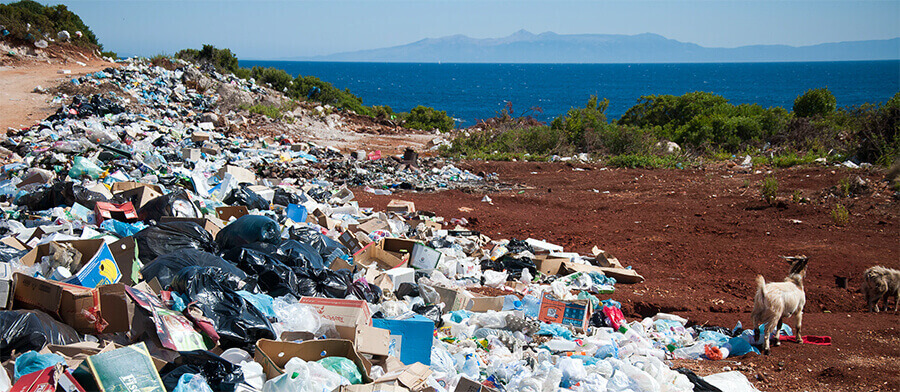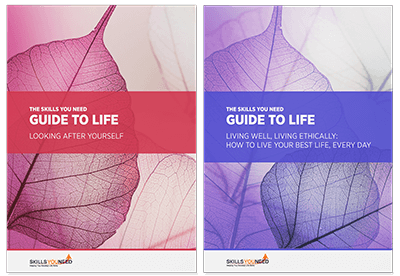Becoming Ecologically Self-Aware
See also: Understanding SustainabilityAnyone who’s been paying attention to news headlines over the last decade understands that the natural world is in crisis.
The sobering reality is that human actions have led to the rapid transformation of virtually every ecosystem on Earth, with the bulk of changes occurring in the years since 1950. Humans are responsible for overpopulation, climate change, the acidification of our oceans, and more.
Although global citizens as a whole are still far removed from a widespread shift towards global sustainability, you can always do your part to lessen your ecological impact and that of your family. Even seemingly small lifestyle changes, such as using less plastic or carpooling with co-workers, can bring us closer to nature.
What’s more, your self-awareness about how your actions can negatively impact the environment may inspire others to do the same. There’s power in numbers, and we need all hands on deck if we have any hope of slowing the ecological damage humans continue to cause. In regard to environmental stewardship, your self-awareness skills can help propel you into a sustainable, self-sufficient future. Here’s how.

Setting a Course for Sustainable Living
The benefits of adopting a sustainable life are myriad and span well beyond the natural world. For instance, when reducing your ecological impact, you may also see improvements to your overall health and wellbeing. Another perk of sustainable living is that it can give you greater autonomy as a global citizen. By embracing sustainability, you’re taking a step closer to self-sufficiency.
Although the concept can vary considerably among individuals, self-sufficient living boils down to your reliance on the so-called “grid:” public utilities such as electricity and potable water, for starters. The most dedicated off-gridders grow or otherwise source their own food and may barter with neighbors and friends rather than patronizing traditional stores.
Don’t worry if you're not quite ready to hunt and butcher your own meat or build a compost toilet. As you pursue greater self-reliance to protect the natural world, it’s perfectly okay to start small. Simply being concerned about the health of the natural environment and your personal ecological impact is the perfect catalyst for positive change.
How to Cultivate Greater Self Awareness
To become an advocate for the natural world, you must have a keen sense of awareness regarding your place in the ecosystem. You must be able to take a good look at the areas in which you can improve and be brave enough to work towards real change — in other words, you must be fully self-aware.
Self-awareness is a state of being that’s characterized by:
- Wisdom and an understanding of one’s self.
- The ability to recognize personal strengths and weaknesses.
- A commitment to the greater good, rather than self-serving endeavors.
- Confidence in the face of adversity.
Generally speaking, self-aware individuals can see themselves through the eyes of others. In the case of the natural world, being self-aware means looking at your actions, habits, and lifestyle through the lens of environmental impact. Be warned: you may not like what you see.
As you become more self-aware, determine where you could make improvements, such as eating a fresher, locally sourced diet, reducing the amount of waste you produce, and travelling sustainably. Then, remain open to the changes that occur, whether they involve a cleaner living space, a significant reduction of your carbon footprint, or a more positive mental attitude.
Clear Your Space to Clear Your Mind
One of the most straightforward changes you can make is being mindful of the waste you produce, from food scraps to packaging and various consumables. Human trash is a massive stain on the natural world, decimating the habitats of marine animals, clogging drainage channels, and polluting groundwater. In 2017, Americans alone produced an average of 4.51 pounds of waste per person, per day, the majority of which ended up in landfills.
When you drastically reduce your waste production, you’ll see tangible rewards in short order. Start by taking a good look at your spending habits, and identify unhealthy patterns, such as excessive clutter build-up. Purge your closet and your home of unnecessary items and try to be more mindful of apparel purchases in the future: For example, how many t-shirts do you really need?
During the decluttering process, make sure to dispose of unwanted items in the most sustainable manner possible. Consider donating gently used clothing to a thrift store and recycling your unwanted electronics.
Putting Your Energy Where it Counts
Along with waste production, how you access your electricity is another area of contention. Humans have long relied on fossil fuels to power our cities and homes, a trend that persists into the present day. In 2016, researchers determined fossil fuels make up a little over 80% of the world’s total energy sources.
Unfortunately, humanity’s reliance on “dirty” fuel sources has come with a tremendous ecological cost, especially where breathable air is concerned. Fortunately for self-aware environmentalists, various solutions exist, and the clean energy revolution is booming around the world. While installing alternative energy systems may be prohibitively expensive in today’s economic climate, certain regions and municipalities offer tax credits to qualified individuals who choose to install a renewable energy system in their home.
When you’re making the switch to a renewable power source like solar or geothermal, you’ll need to know how much energy your family consumes every month. That way, you can install an alternative energy system that both meets your personal needs and doesn’t generate excess power or emissions.
The good news is that you don’t need to be a math whiz to calculate your home’s monthly energy usage accurately. Instead, you’ll need at least rudimentary knowledge of multiplication and division, along with a few basic pieces of information. You can estimate the daily energy consumption of a particular appliance using the following steps:
- Multiply the appliance’s wattage by the amount of time used. This gives you daily watt-hours.
- Convert the daily watt-hours to kilowatt-hours (kWh) per day.
- Multiply the daily kWh by 30 to determine monthly energy consumption.
- Finally, multiply monthly kWh by the kWh rate of your electric provider.
With just a dash of self-awareness and a little bit of mathematics, you’re taking greater responsibility for both your energy consumption and your overall ecological impact.
Key Takeaways
Not all of us have the dedication and resources needed to become a zero-waste household, but you can still take steps to reduce your overall environmental impact. Self-awareness is your starting point towards becoming more mindful of how your actions and habits may harm the Earth. What’s more, your ecologically motivated actions could inspire your friends and family to become more self-aware and make positive changes of their own.
Further Reading from Skills You Need
The Skills You Need Guide to Life
This two-part guide is an easy-to-read summary of the essential skills you need for a healthy mind and body.
The first eBook, Looking After Yourself, covers some of our most popular content and will help you to live a happier, healthier and more productive life.
The second eBook, Living Well, Living Ethically, considers how you can live your best life all the time. It helps you to answer the question: how can I avoid having too many regrets about my life?
About the Author
Magnolia Potter is from the Pacific Northwest and writes from time to time. She prefers to cover a variety of topics and not just settle on one. When Magnolia’s not writing, you can find her outdoors or curled up with a good book.

